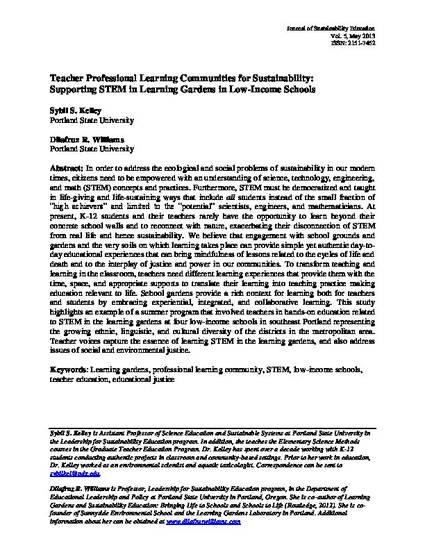
- Learning garden programs,
- Place-based learning,
- Low-income students,
- Sustainability
In order to address the ecological and social problems of sustainability in our modern times, citizens need to be empowered with an understanding of science, technology, engineering, and math (STEM) concepts and practices. Furthermore, STEM must be democratized and taught in life-giving and life-sustaining ways that include all students instead of the small fraction of "high achievers" and limited to the "potential" scientists, engineers, and mathematicians. At present, K-12 students and their teachers rarely have the opportunity to learn beyond their concrete school walls and to reconnect with nature, exacerbating their disconnection of STEM from real life and hence sustainability. We believe that engagement with school grounds and gardens and the very soils on which learning takes place can provide simple yet authentic day-today educational experiences that can bring mindfulness of lessons related to the cycles of life and death and to the interplay of justice and power in our communities. To transform teaching and learning in the classroom, teachers need different learning experiences that provide them with the time, space, and appropriate supports to translate their learning into teaching practice making education relevant to life. School gardens provide a rich context for learning both for teachers and students by embracing experiential, integrated, and collaborative learning. This study highlights an example of a summer program that involved teachers in hands-on education related to STEM in the learning gardens at four low-income schools in southeast Portland representing the growing ethnic, linguistic, and cultural diversity of the districts in the metropolitan area. Teacher voices capture the essence of learning STEM in the learning gardens, and also address issues of social and environmental justice.
Copyright of the Journal of Sustainability Education.
This work is licensed under a Creative Commons Attribution 3.0 International License.
